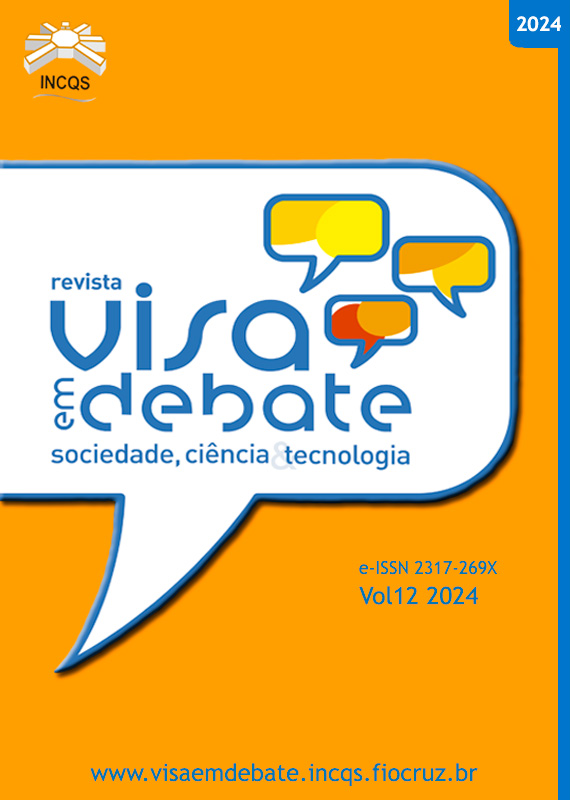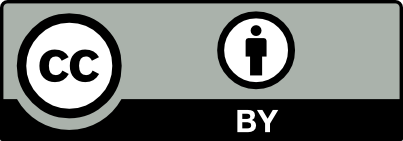Study of the difficulties encountered by Brazilian laboratories inimplementing alternative methods to animal use: assessment of Ocular Irritation and the Bovine Corneal Opacity and Permeability (BCOP) test
Vigil Sanit Debate, Rio de Janeiro, 2024, v.12: e02283 | Published on: 15/10/2024
DOI:
https://doi.org/10.22239/2317-269X.02283Keywords:
Alternative Methods, Toxicological Tests, Eye Irritation, BCOP, InterviewAbstract
Introduction: Ensuring the safety of products causing ocular irritation is crucial. The Bovine Corneal Opacity and Permeability (BCOP) test is an accepted alternative method for ocular irritation assessment in regulatory contexts. Objective: This study aimed to identify the main challenges and technical limitations faced by professionals when implementing alternative methods, particularly for ocular irritation assessment. Method: A qualitative research approach was employed using questionnaires (n = 22 respondents) and interviews (n = 7), followed by discourse analysis. Results: Findings reveal that 71% of alternative method practitioners encounter significant difficulties, primarily due to high validation/implementation costs (62%), driven by consumable expenses. Limited access to training (62%) and importation of reagents and equipment (43%) were also noted. Key BCOP limitations include restricted access to bovine eyeballs (50%), less precise risk classification (43%), and substantial eyeball waste (29%) due to damage. Interviews supported these conclusions, highlighting challenges such as travel to slaughterhouses, insufficient technical details in the OECD Guide, the need for additional support materials, and a lack of experienced professionals. These results underscore the need for expanded training opportunities for test implementation. The high cost of imported materials indicates greater validation expenses in Brazil than in other countries. Conclusions: Addressing these challenges requires an open innovation environment, fostering collaboration among the Triple Helix (Companies, Scientific and Technological Institutions, and Government).
Downloads
Downloads
Published
Issue
Section
License
Copyright (c) 2024 Health Surveillance under Debate: Society, Science & Technology

This work is licensed under a Creative Commons Attribution 4.0 International License.
COPYRIGHT ALLOWANCE The author (s) hereinafter designated as the ASSIGNOR hereby assign and transfer, free of charge, the ownership of the copyrights related to this ARTICLE to the Vigilância Sanitária em Debate: Sociedade, Ciência & Tecnologia (Health Surveillance under Debate: Society, Science & Technology) – Visa em Debate, represented by FUNDAÇÃO OSWALDO CRUZ, established at Av. Brasil, nº 4365, Manguinhos, Rio de Janeiro, RJ, Brazil, CEP 21045-900, under the conditions set out below: (a) The terms and conditions set forth in this Agreement shall apply to the following: 1. The ASSIGNOR declares that they s(he) is (are) the author (s) and owner (s) of the copyrighted property of the ARTICLE submitted. 2. The ASSIGNOR declares that the ARTICLE does not infringe the copyrights and / or other property rights of third parties, that the disclosure of images (if any) has been authorized and that they s(he) assume(s) full moral and / or property liability for its content, before third parties. 3. THE ASSIGNOR assigns and transfers all copyrights relating to the ARTICLE to the ASSIGNEE, especially the rights of editing, publication, translation into another language and reproduction by any process or technique. The ASSIGNEE becomes the exclusive owner of the rights related to the ARTICLE, and any reproduction, totally or partially, is prohibited in any other means of publicity, printed or electronic, without prior written authorization from the ASSIGNEE. 4. The assignment is free and, therefore, there will be no remuneration for the use of the ARTICLE by the ASSIGNEE.







